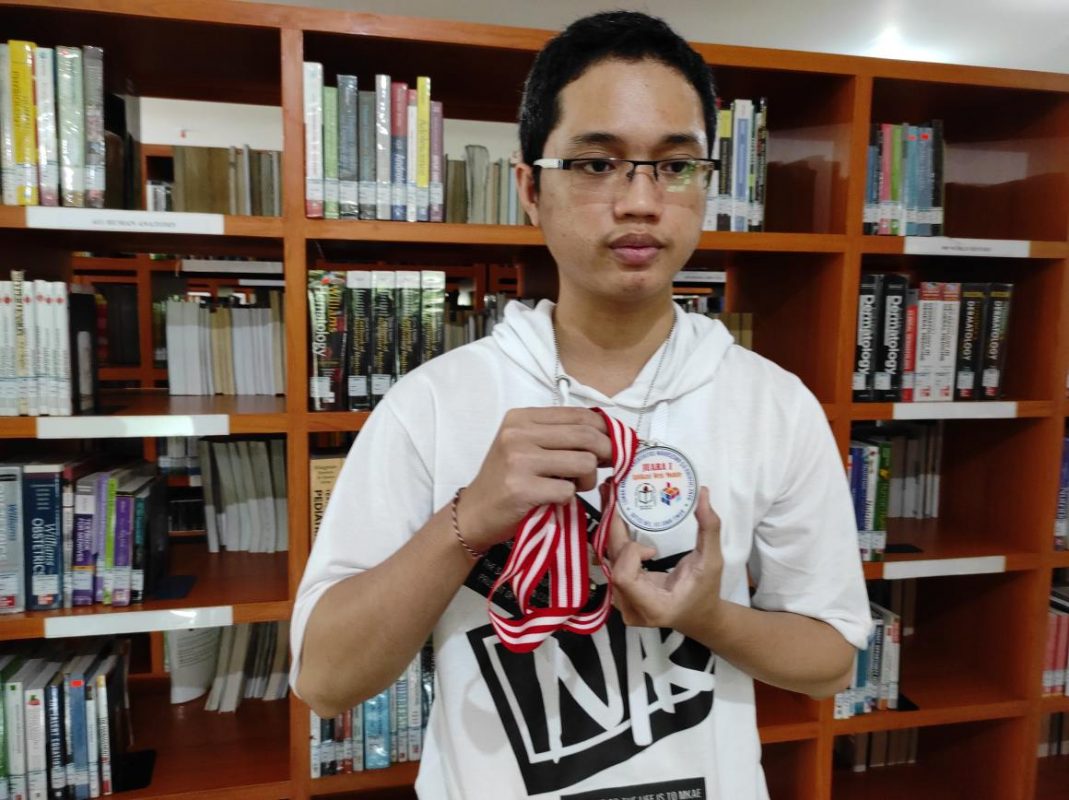Surabaya – Five students from Universitas Nahdlatul Ulama Surabaya (UNUSA) won 2020 LOKreatif, a National Student Creativity Competition which organized by the Association of Indonesian Private Higher Education (APTISI) Region VII East Java at the first place.
They were Devaldi Akbar Suryadi, Rr. Fadila Kusumaning Ayu, Nur Fauziah, Zahrotul Jannah and Tri Nadia Ningsih, created the Planetarium Glass application which used to learn about the planets and galaxy during Covid-19 with Augmented Reality (AR) technology.
As the student’s representative, Devaldi Akbar Suryadi, uttered their idea originated from the National Student Scientific Week (PIMNAS) which did not qualify enough, so they tried to keep forward in this competition.
“From our failure in PIMNAS, we continue to develop this application further. Then, finally our idea are qualified and entered the semi-finals,” said Devaldi on Thursday (14/1).
Devaldi explained about the Planetarium Glass application that will be help elementary school students learn about the planet and galaxy with the latest technology (AR Application). In the midst of the Covid-19 pandemic, virtual teaching has been familiar enough, so it will be help the science teacher as well.
In the planetarium glass application, three-dimensional (3D) objects will appear with the explanation of each object. “For example, an earth object card, an animation of the earth rotating in three dimensions will also appear accompanied by the explanation of what the planet earth looks like,” explained Devaldi. He wished the virtual teaching will not be boring and the elementary school students will pay attention more because their planetarium glass application using the latest technology.
Devaldi also wished this application can help to enlarge children’s literacy, particularly in the field of science in Indonesia, which is very very low according to the PISA data by the OECD.
“We wish that our innovation will be helping the teacher and the elementary students/learner to learn science better, particulary during this pandemic. We also wish that it will creating good paradigm that science is easy to understand,” said Devaldi closed his conversation. (sar UNUSA public relations and Marketing)

 Bahasa Indonesia
Bahasa Indonesia

